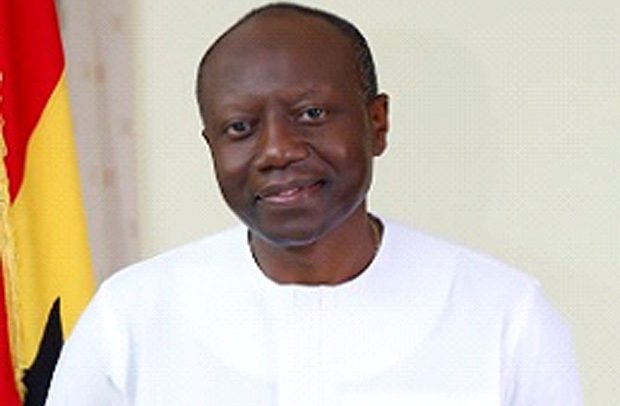Finance Minister, Ken Ofori-Atta
The Ghana National Chamber of Commerce and Industry (GNCCI) has asked government to further reduce some taxes in the 2019 budget to enhance the business environment and help the private sector to thrive.
Mark Badu Aboagye, Chief Executive Officer (CEO) of the GNCCI, said it would be helpful to the private sector if the Corporate Tax is reduced from the current 25 per cent to 20 per cent.
He said although the GNCCI recognised the need for government to mobilise resources to finance its projects, it should not increase existing taxes or introduce new ones in the 2019 fiscal year.
“Now businesses are overburdened with a lot of taxes and levies and any further increment will be inimical to the private sector and to businesses,” he stated.
He said government should rather broaden the tax net to include businesses that were currently not paying taxes.
Mr. Badu-Aboagye also revealed that the Chamber expects a concrete plan for the implementation of government’s flagship programme, the One District, One Factory (1D1F) project.
He said it was a laudable project which would help enhance the business environment by easing pressure on the cedi and reduce demand for foreign exchange.
Although the project is a good policy to reduce unemployment, importation and boost exports, its implementation has been delayed, so there is the need for a concrete plan and improved partnership with the private sector through the offering of incentives,” he added.
He said government must focus on factory projects, which can be done easily, while investing in the more complex factories over the medium term.
He added that the 2019 budget should highlight details on how many factories are expected to be set up and in which areas so that the private sector can support its implementation.
“We are expecting a budget that will improve or further enhance the business environment for the private sector and which will consolidate the gains made so far, regarding inflation and policy rates, which have gone down,” he said.
The GNCCI said the budget must include fiscal and monetary policies that will help reduce lending rates in Ghana, especially as the reduction in the policy rate had still not been reflected in a reduction of interest rates.
He disclosed that Ghana has the second highest rates in the world, with interest rates in the region of 30 to 35 per cent, which do not auger well for the private sector to make profit for shareholders, invest in their companies or repay their loans.
“We don’t expect our business men and women to be competitive under such conditions. We are expecting that some of the policies would help reduce the interest rates,” he said.
He added that changing the structure of the economy to a more export-led through the 1D1F would help stabilize the cedi.
“We expect a statement from the Minister of Finance on how they are going to ensure that what happened in the banking sector this year would not happen again, and that the banking sector is strengthened to support the private sector.
He explained that businesses, particularly Small Medium and Enterprises (SMEs) work closely with the banking sector because it was more difficult for them to go to the stock exchange to raise capital so anything that happened in the banking sector affected its activities.
“We don’t want a situation whereby what led to the collapse of the seven banks will happen again so the Ministry of Finance and the Bank of Ghana must put in place proper risk management and monitoring of the activities of the banks,” he stated.
“So basically we are expecting a business-friendly budget which would support the private sector and we as business men and women would take advantage of that and meet the needs and demands of Ghanaians,” he said.
– GNA


